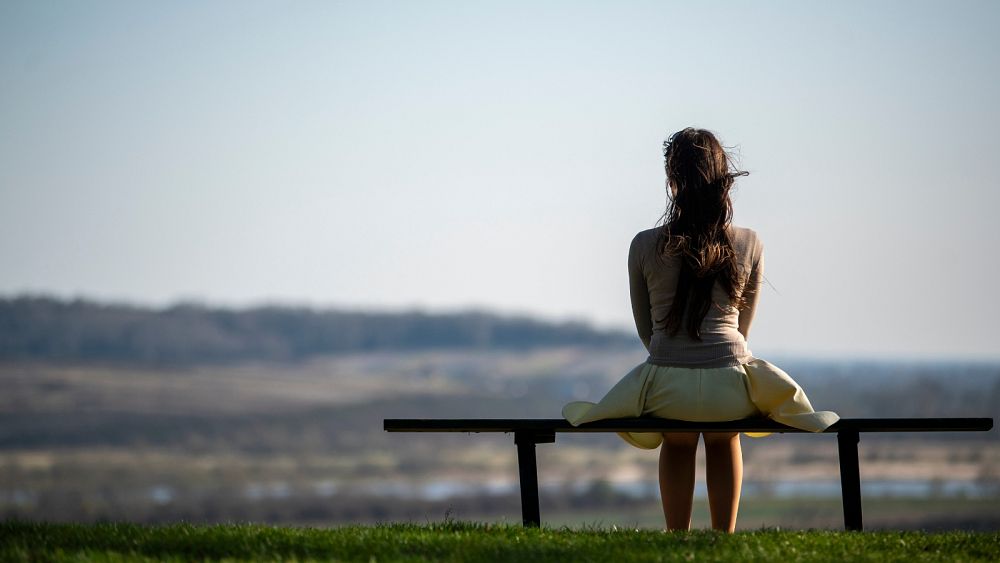A new EU pilot project on loneliness aims to monitor and address a growing lack of “meaningful social interactions”.
At least one in 10 residents of the European Union feels lonely most of the time, according to a new study A report on the unit commissioned by the European Commission.
About 13% of EU residents reported feeling lonely most or all of the time in the first EU-wide loneliness survey of 25,000 people.
The project was undertaken to gain an overview of the “epidemic of loneliness” caused by prolonged lockdowns and isolation during the COVID-19 pandemic.
According to the report, loneliness is most common in Ireland, where around 20% of respondents said they feel lonely, followed by Bulgaria, Greece and Cyprus, with 16 to 17% positive responses to loneliness.
The lowest levels of loneliness were observed in the Netherlands, the Czech Republic, Croatia and Austria, with less than 10% of the sample surveyed.
Portugal appears in the second group of countries in terms of loneliness, with 12 to 13% of respondents reporting feeling lonely most of the time.
In Portugal, the relationship between loneliness and health has been the subject of a study by researcher Rui Costa of the ISPA Instituto Universitário.
According to the European Union report, people who feel lonely all or most of the time are 20 percentage points more likely to have depressive symptoms.
The report states that “the unit is not just a private individual issue”.
“It can prevent social cohesion and should be viewed as a social problem and treated as such,” the document reads.
Keys to preventing loneliness
The report says cultural factors play an important role in loneliness, in addition to life events.
“Favourable economic conditions, as well as the quantity and quality of social interactions, are key to preventing loneliness,” the document adds.
Heavy use of social media is also associated with increased feelings of loneliness, and websites “lack the intimacy and quality of offline interactions.”
The report says loneliness is higher among young people surveyed than among older people, as major life events tend to disrupt social media and make anyone vulnerable to feeling lonely.
The study acknowledged, however, that the consequences of loneliness vary by age and that loneliness among the elderly can in no way be ignored.
In recent years, global surveys have determined that European countries such as Italy have some of the highest rates of loneliness in old age.
The report says that one of the main challenges in solving the problem of loneliness is caused by social stigma and ignorance, adding that 57% of the respondents were not aware of the existence of intervention methods and policies.

“Hardcore alcohol maven. Hipster-friendly analyst. Introvert. Devoted social media advocate.”

